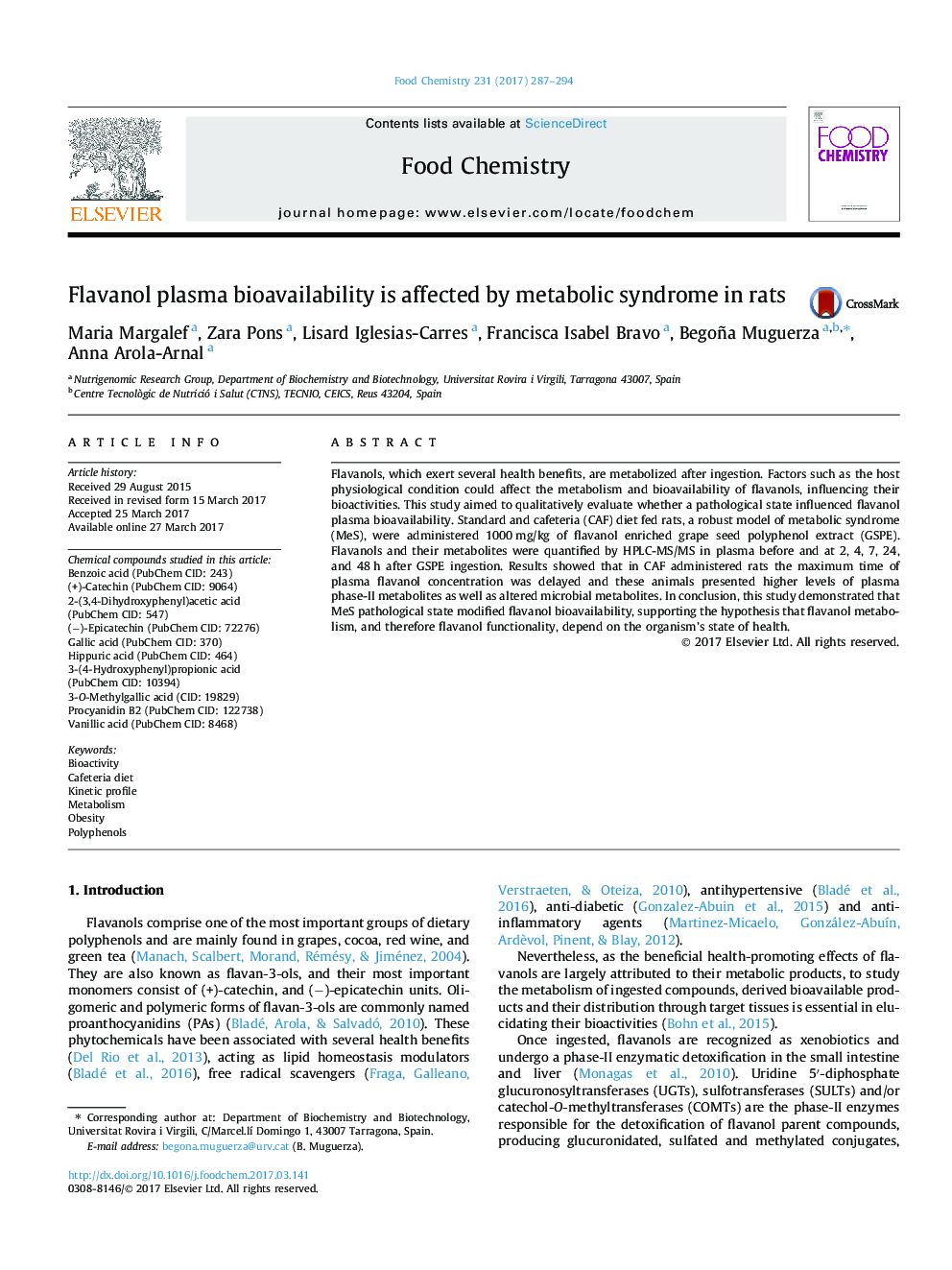| Article ID | Journal | Published Year | Pages | File Type |
|---|---|---|---|---|
| 5132893 | Food Chemistry | 2017 | 8 Pages |
â¢Maximum flavanol plasma bioavailability is delayed in rats with metabolic syndrome.â¢This disease increases first-pass absorption and phase-II metabolism of monomers.â¢Flavanol microbial metabolism is disrupted in rat whit metabolic syndrome.
Flavanols, which exert several health benefits, are metabolized after ingestion. Factors such as the host physiological condition could affect the metabolism and bioavailability of flavanols, influencing their bioactivities. This study aimed to qualitatively evaluate whether a pathological state influenced flavanol plasma bioavailability. Standard and cafeteria (CAF) diet fed rats, a robust model of metabolic syndrome (MeS), were administered 1000Â mg/kg of flavanol enriched grape seed polyphenol extract (GSPE). Flavanols and their metabolites were quantified by HPLC-MS/MS in plasma before and at 2, 4, 7, 24, and 48Â h after GSPE ingestion. Results showed that in CAF administered rats the maximum time of plasma flavanol concentration was delayed and these animals presented higher levels of plasma phase-II metabolites as well as altered microbial metabolites. In conclusion, this study demonstrated that MeS pathological state modified flavanol bioavailability, supporting the hypothesis that flavanol metabolism, and therefore flavanol functionality, depend on the organism's state of health.
